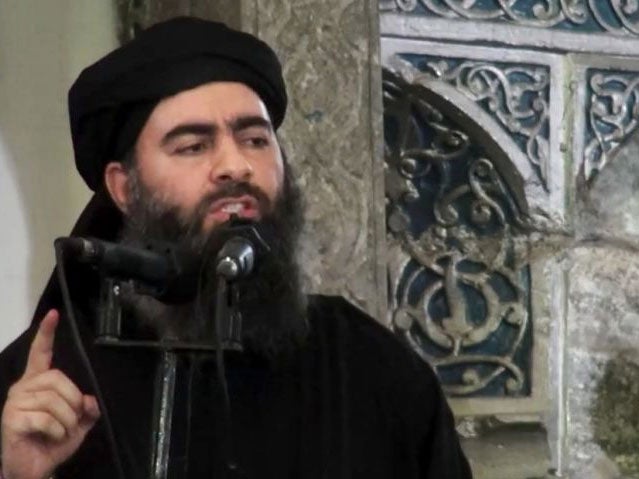Isis and al-Qaeda agree 'to end fighting and join against their opponents'
Al-Qaeda has been fighting with Isis since the latter separated from it as an offshoot

Your support helps us to tell the story
From reproductive rights to climate change to Big Tech, The Independent is on the ground when the story is developing. Whether it's investigating the financials of Elon Musk's pro-Trump PAC or producing our latest documentary, 'The A Word', which shines a light on the American women fighting for reproductive rights, we know how important it is to parse out the facts from the messaging.
At such a critical moment in US history, we need reporters on the ground. Your donation allows us to keep sending journalists to speak to both sides of the story.
The Independent is trusted by Americans across the entire political spectrum. And unlike many other quality news outlets, we choose not to lock Americans out of our reporting and analysis with paywalls. We believe quality journalism should be available to everyone, paid for by those who can afford it.
Your support makes all the difference.Militant leaders from the Isis and al-Qaeda terrorist groups have agreed to stop fighting each other in order to join against their opponents.
Isis, which calls itself the Islamic State (Isis), and al-Qaeda’s Syrian affiliate, Jabhat al-Nusra, have been engaged in bitter fighting for more than a year in an attempt to dominate the bloody rebellion against Syrian President Bashar al-Assad.
The accord set between the extremists groups in northern Syria last week could spell problems for the US-led coalition in its fight against Isis, as it complements its air strikes by arming “moderate” rebel factions to fight on the ground.
Now, if the two terrorist groups fulfil their agreement and unite as one force, this would further weaken US-backed rebels - who are viewed as relatively disorganised.
The agreement follows signs that the two groups had cooled their feud with informal truces, the Associated Press reported. A high-level Syrian opposition and a rebel commander have since told the news agency that the accord would see them halt fighting and to open up against Kurdish fighters in a couple of new areas of northern Syria.
The meeting between seven top militant leaders took place on 2 November in the town of Atareb, west of Aleppo, according to a Syrian opposition official speaking in Turkey. He added that the meeting was closely followed by members of his movement, and he is certain Isis and al-Qaeda reached an agreement.
However, experts believe any pact could easily be broken, and US intelligence officials monitoring the terrorist organisations have said that they did not expect a merger to happen soon, if ever.
Speaking on a condition of anonymity, a US official with access to intelligence on Syria said the American intelligence community has not seen any indications of a shift in the two groups' strategy, but added that he could not rule out tactical deals on the ground.
Nusra has gained a reputation as one of the most battle-hardened factions attempting to overthrow Assad in the civil war which has killed more than 200,000 people since it began as part of the Arab Spring 2011.
And in 2012, Isis branched out from al-Qaeda in Iraq, and over the course of this year, the group has seized nearly a third of Syria and Iraq with a campaign of brutality and beheadings.
Al-Qaeda initially rejected Isis's claims to any role in Syria, and Nusra and other factions entered a war-within-a-war against it. But the Isis swelled in power and became flush with weapons and cash after overrunning much of northern and western Iraq over the summer.
Tom Joscelyn, an American analyst who tracks terror groups for the website Long War Journal, said no messages have emerged to confirm that the two groups have formally joined forces on the battlefield. But he said there has been information emerging before the reported 2 November meeting “that would seem to fit in with that being what they were driving at. There has been a big push on the al-Qaeda side to get this (alliance) through.”
“If there is less blood being spilled against each other and they don't have to worry about that, that's going to make it easier for the jihadis to go after Assad or any Western-backed forces,” he added.
Additional reporting by AP
Join our commenting forum
Join thought-provoking conversations, follow other Independent readers and see their replies
Comments